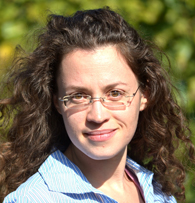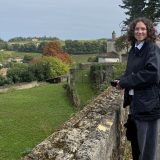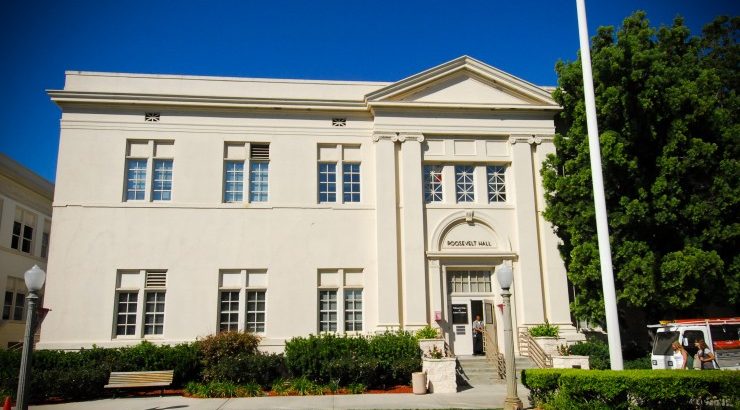
Internal Research Grants Awarded 2023
June 12, 2023
Congratulations to the eleven Wilkinson College of Arts, Humanities, and Social Sciences projects that were awarded a total of $106,805 from two new internal grant programs – Chapman University’s inaugural Faculty Grant for Research, Scholarship and Creative Activities and Wilkinson College’s Scholarly/Creative Activity Faculty Grant! Below is a summary of each of the funded projects.
Faculty Grant for Research, Scholarship, and Creative Activities
The Office of Research Faculty Grant for Research, Scholarship, and Creative Activities (FGRSC) internal grant program provides competitive, merit-based support for research, scholarly, and creative activities in all disciplines and fields. The FGRSC supports projects that will lead to the development of new and innovative scholarship and creative activity or the production of publications, attract external funding, increase competitiveness for external awards, and enhance the national visibility and reputation of Chapman faculty.
 Alex Bay (History)
Alex Bay (History)
From Cholera to COVID-19: A History of Hygiene in Modern Japan ($8,865)
From Cholera to COVID-19 examines the Japanese responses to epidemics from 1858 to 2020 through an examination of how Japan constructed a culture of hygiene, from government policies to local practices. In the West, sewer systems built in the 19th-century were the backbone of prevention and increased life-expectancy. Japan did not follow this pattern. My policy-relevant message is that Japan achieved prevention without sewers (which were built later in the 1970s). This promises to inform the challenge of delivering hygiene to 1/4 of the world without access to daily sanitation facilities. It shows how policy, education, and the medical marketplace achieved prevention and will be the first English-language book to examine the history of Japanese hygiene from a medical, environmental, and material-culture perspective. This grant will support a research trip to Kyoto and Tokyo, Japan in Fall 2023 to collect materials to finish the book manuscript.
 Monique Charles (Sociology)
Monique Charles (Sociology)
Roots, Routes & Routers: A Sonic Methodology of Black Praxis ($15,000)
Roots, Routes & Routers: A Sonic Methodology of Black Praxis is a sonic piece that enables listeners to travel on an embodied Black Atlantic journey. These flows and nodes of sound created through Black practices, perspectives, and collective experiences are the fabric woven together to tell stories of time, space, and technology. Employing a sonic methodology, i.e., capturing sounds significant to the Black past, present, and future, illuminates connections in Black praxis across time and space. The result takes listeners on a sensory journey of Black stories and knowledge. Rather than having physical distance to concepts and ideas through visual or reading technologies, the sonic piece enables an auditory, visceral, and embodied experience. Eshun’s concept of rhythmachine and Gilroy’s Black Atlantic are underpinning concepts that facilitate an embodied journey and epistemological tool, reexamining important interpretive problems around Blackness. This grant will support a student research assistant, research trips to Ghana and Jamaica, and consultant services.
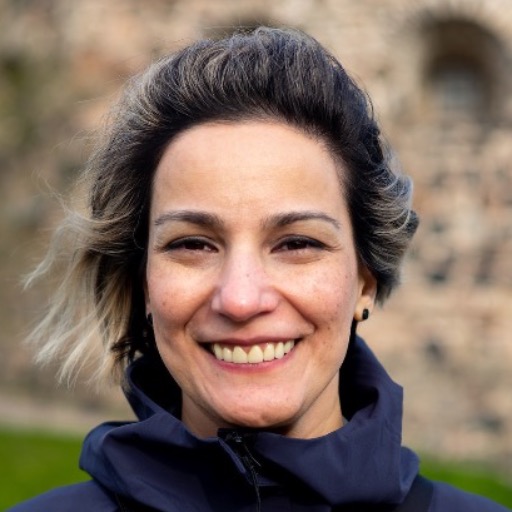 Maliheh Ghajargar (Art)
Maliheh Ghajargar (Art)
Posthuman Sustainable Interaction Design and Human-AI Creativity: Fieldwork, Design Patterns, Artifacts ($14,994)
Sustainable interaction design has developed over the past decades as a key part of the human-computer interaction (HCI) research community’s response to climate change and the threats it poses. Further, posthumanism in design seeks ways to design more sustainable futures by decentering human agencies and creativity. A key challenge of this approach is understanding how to decenter the human, considering the very human-centered nature of design. At the same time, there has been a rapid increase in the use of generative Artificial Intelligence (AI) technologies. Now AI systems are capable of not only classifying but also autonomously generating new data like that which it is based on. This development has been argued as fundamentally transformative to interaction design and related fields and human society at large. This project seeks to contribute to the area of human-AI creativity, focusing on sustainable interaction design. It employs art and design research methods with a posthumanist angle. This grant will support student research assistants, fieldwork travel, design lab visits, and human subject compensation.
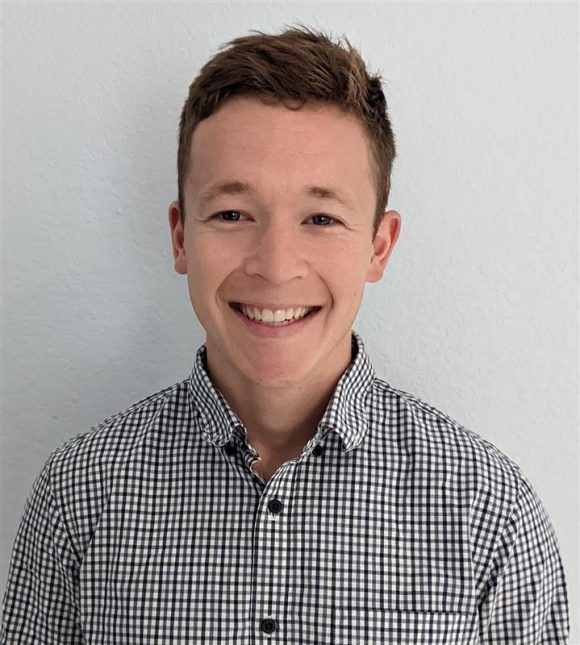 Patrick Hunnicutt (Environmental Science and Policy)
Patrick Hunnicutt (Environmental Science and Policy)
Can informal political elites support post-conflict development? Experimental evidence from Liberia. ($14,876)
Promoting economic development in post-conflict situations is vital for sustaining long-term peace and stability but difficult to achieve in practice. This project investigates how public services providers can effectively partner with community leaders to catalyze development from the bottom up after conflict ends. Specifically, Hunnicutt will combine a conjoint experiment and panel data from an original survey to test whether community leaders – such as the informal political elites who emerge to govern in the absence of the state during civil war – can improve people’s access to and satisfaction with government-backed garbage collection services in Liberia’s capital city of Monrovia. Hunnicutt and his Liberian colleague, Kou Gbaintor-Johnson, are co-designing the experiment and survey with the Monrovia City Corporation: the government agency responsible for providing solid waste services in Monrovia. This grant will support a continued partnership with the Center for Action Research and Training, a research firm based in Monrovia, which will conduct training and coordinate data collection.
 Susan Paterno (English)
Susan Paterno (English)
The Civic News Initiative: New Directions for Democracy and the Fourth Estate ($15,000)
Does the media still serve democracy? What happens to democracy and civic health when local journalism is replaced with news deserts, propaganda, and pink slime sites? How can we create and expand a sustainable civic news model in Orange County that will accelerate new and innovative research areas already underway? The Civic News Initiative seeks to answer those questions. This project will begin by testing the efficacy of a new direction in news gathering, academic/civic news partnerships, collaborating with a University of Vermont study underway. Preliminary findings indicate that connecting students with faculty and professional editors to provide reporting at no cost to local non-profit, non-partisan civic news sites improves the health of under-served and underrepresented communities of color. Chapman’s Collegiate News Service — one of the nation’s first and most innovative news/academic partnerships — is the field laboratory where we will develop measurement analytics to gauge success. Paterno will identify systems that block rather than facilitate democracy, illuminate methods to reinforce and perpetuate democratic principles and develop best practices for creating new ways of reporting and financing local civic accountability journalism. This grant will support a student research assistant, student internships, professional mentors, and community boot camps.
 Nora Rivera (English)
Nora Rivera (English)
Indigenous Interpreters and Translators as Technical Communicators ($15,000)
This interdisciplinary study aims to trace the backgrounds of Indigenous interpreters and translators to better understand their needs through a collection of six testimonios, or narratives, that trace the participants’ experiences. This study will expand Rivera’s work with Indigenous interpreters and translators as technical communicators mediating highly technical language in Western institutions such as courts, medical facilities, and school districts. It will also examine these experiences from a linguistic lens through collaborator Dr. Pilar Valenzuela (World Languages and Cultures). The output expected from this study is a bilingual (English-Spanish) edited collection of oral testimonios. This grant will support travel expenses of the PI, collaborator, and 6 Indigenous professionals from Mexico, Peru, and the US to meet in Oaxaca City to collect the data.
Wilkinson College Scholarly/Creative Activity Faculty Grant
The Wilkinson College Scholarly/Creative Activity Faculty Grant supports the development of impactful and innovative scholarly or creative work by Wilkinson College tenure-track or tenured faculty. This program aims to advance faculty career trajectories, elevate the national visibility and reputation of Wilkinson faculty for their excellence in creative and scholarly endeavors, and provide faculty with opportunities to catalyze new and innovative areas or bring an existing project to completion.
 Alex Bay (History)
Alex Bay (History)
From Cholera to COVID-19: A History of Hygiene in Modern Japan ($4,430)
Funds will support the final research, during a fall sabbatical, for a book on Japanese environmental and medical history. The global image of Japan today is of a hygienic society with advanced toilets, mask-wearing, and the longest life expectancy. This was not always the case. Bay’s book examines the responses to public health crises from 1858 to 2020 through an examination of how Japan constructed a culture of hygiene, from government administrative policies to the social and material practices experienced in local communities. In the West, sewers built in the 1800s were the backbone of prevention and increased life expectancy. In Japan, it was not. Japan achieved prevention without sewers (which were completed in the 1970s), and its conclusions inform the challenge of delivering hygiene to ¼ of the world’s population without sanitation. It is the first English-language book to examine the history of Japanese hygiene from a medical, environmental, and material-culture perspective. This grant will support a final research trip to Japan to collect additional archival materials to fill in the gaps uncovered from previous archival research collection.
 Patrick Hunnicutt (Environmental Science and Policy)
Patrick Hunnicutt (Environmental Science and Policy)
Can informal political elites support post-conflict development? Experimental evidence from Liberia. (Jeffrey Griffith ’11 Junior Faculty Research Award, $4,895)
Improving public service provision in post-conflict situations is crucial for promoting human well-being and political stability. However, the governments which emerge from conflict often struggle to sustain public service provision at scale. This project explores how governments and community leaders can collaborate to expand public service provision after conflict ends. Specifically, Hunnicutt will deploy a conjoint experiment and original panel survey to test whether the participation of community leaders – such as the informal political elites who emerge to govern in the absence of the state during civil war – improves government efforts to increase people’s use of and satisfaction with formal garbage collection services in Monrovia, the capital city of Liberia. Hunnicutt and his Liberian colleague, Kou Gbaintor-Johnson, are co-designing the conjoint experiment and survey with the Monrovia City Corporation, which oversees solid waste management in Monrovia. This grant will support the project’s personnel costs and a research trip to Monrovia to oversee the launch of the conjoint experiment and panel survey.
Shira Klein (History)
Jews and Race in the Italian Colonization of Africa, 1890-1945 ($4,000)
Klein’s monograph, “Jews and Race in the Italian Colonization of Africa, 1890-1945,” examines the causes, nature, and consequences of Italian Jews’ support for imperialism. Klein argues that between the 1890s and 1930s, Italian Jews took an active part in racializing and controlling indigenous Libyan and Ethiopian Jews. Moreover, by promoting the empire and upholding a racial hierarchy between Europeans and Africans, Italian Jews unwittingly contributed to their own downfall, since Italy’s antisemitic campaign (1938-1945) borrowed heavily from earlier anti-black legislation and propaganda. This book breaks new ground. Whereas most studies on Jews and colonialism use the lens of intellectual and legal history, Klein’s is a social history. Using non-traditional sources, it is the first to inquire what ordinary European Jewish women and men thought about empire and how they engaged with it in their daily life. This grant will support a research trip to Israel, local research assistants in Israel and Italy, and a translator.
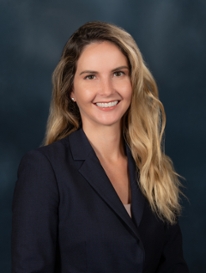 Ashley Kranjac (Sociology)
Ashley Kranjac (Sociology)
Big Data Meets Behavioral Health: Neighborhood Effects on Latinx Youth (Jeffrey Griffith ’11 Junior Faculty Research Award, $4,745)
Childhood mental illness is a major public health challenge in the US. A continuing rise in the prevalence of pediatric mental disorders is a serious concern because illness may persist into adulthood, and mental illnesses account for vast numbers of hospitalizations, heightened risk for suicide, and enormous economic burden. The prevalence of mental disorders among youth varies by race/ethnicity, and the number of Latinx youth presenting with mental health issues is increasing. The neighborhood socioeconomic environment where Latinx children live is a determinant of mental health problems. AddHealth is a longitudinal study of a nationally representative sample of over 20,000 adolescents and comprises data on pertinent mental health outcomes. Capitalizing on these data, the present proposal represents a collaborative effort to estimate differential impacts of residential context on mental illness in a largely Latinx sample of children living in Orange County and Los Angeles County. This grant will support consultant fees and software.
 Minju Kwon (Political Science)
Minju Kwon (Political Science)
Blacklisted Rebels: Commitment to Child Rights in Armed Conflict in Nepal (Jeffrey Griffith ’11 Junior Faculty Research Award, $5,000)
This research project explores causal factors that influence rebel groups’ reactions to being blacklisted by the United Nations (UN) for their violations of child rights in armed conflict. As part of case studies, Kwon examines why the Unified Communist Party of Nepal-Maoist (UCPN-M) signed and complied with its UN action plan for ending and preventing the recruitment of children. With a focus on UCPN-M’s concerns about domestic and international legitimacy, Kwon will collect qualitative data from interviews through fieldwork in Kathmandu, Nepal, from December 2023 through January 2024. As the first systematic mixed-method research on UN action plans, this research contributes to the literature on international institutions by analyzing the conditions under which the UN’s “naming and shaming” increases rebel groups’ commitment to international humanitarian law. The Grant will enable Kwon to complete a peer-reviewed journal article and a book manuscript. This grant will support a research trip to Nepal.
